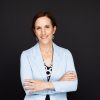
The role of women in economics has not always been visible. Similar to STEM disciplines, women in Canada have, unfortunately, not had an equal opportunity. The pipeline is broken. The Canadian Women Economist Network (CWEN) was established in 1990 to promote women in the economics profession and their work. In 2017 the CWEN has joined the Canadian Economics Association (CEA) to form the Canadian Women Economists Committee (CWEC). This marked a pivotal moment in the profession, recognizing the role of the economics profession in supporting and promoting women economists. The decades-long work of CWEN/CWEC paved the way to the CEA’s first Diversity is Excellence Summit in 2022 and the creation of the Canadian Economics Diversity Committee. Has the profession changed? Will it change? What do we need to do to ensure an inclusive and diverse profession? Are efforts in academia translate to results for business economists?
Join us to learn and reflect on the changing status of women and diverse communities in the economics profession. Learn from past experience and look at future opportunities.
Resources
Download the slides in PDF format: CABE Webinar – Canadian Women Economists Network
See the website: Canadian Economics Diversity Committee (CEDC)
 Associate Professor and the Associate Chair, Department of Economics, University of Victoria
Elisabeth Gugl
Associate Professor and the Associate Chair, Department of Economics, University of Victoria
Elisabeth Gugl
Elisabeth Gugl holds a Ph.D. in Economics from Rice University (2004). She is an Associate Professor and the Associate Chair in the Department of Economics at the University of Victoria. Dr. Gugl’s main research is in family economics, an area that investigates issues such as family formation and dissolution, fertility decisions, investments in children, altruism in families, and gender inequality in relationships. One of the recurring themes in her research is the analysis of how family members make decisions and how public policy may influence their actions and ultimately the distribution of welfare among family members. Her publications in this area appear in Theoretical Economics, the Canadian Journal of Economics, Economic Inquiry, Mathematical Social Sciences, Review of Economics of the Household, Canadian Journal of Women and the Law, Canadian Tax Journal, and Studies in Microeconomics. A second strand of her research is in tax competition with the most recent publications in the National Tax Journal and International Tax and Public Finance. After being a board member on CWEC (and CWEN) from 2015 to 2021, Elisabeth Gugl joined the board of CWEC again in 2022 as vice-chair.
 Associate Professor, University of Toronto
Ismael Mourifié
Associate Professor, University of Toronto
Ismael Mourifié
Ismael Mourifié is an Associate Professor (with tenure) at University of Toronto. He is also Faculty Research Fellow in Labor studies at the National Bureau of Economic Research (NBER) and a member of the Early Childhood Interventions Network at University of Chicago. Dr. Mourifié’s research interests lie in Microeconometrics, especially identification issues in incomplete models, causal inference, policy evaluations, and empirical matching models. His works have been published in leading economics and statistical journals such as Journal of Political Economy, Journal of Labor Economics, Review of Economics and Statistics, Journal of Econometrics and Biometrika. He is currently associate editor at the Journal of Econometrics, Journal of Business of Economic & Statistics, and Annals of Economics and Statistics, and has been the 2017 recipient of the John C. Polanyi Prize in Economic Science. Since 2022, Dr. Mourifié co-chairs with Pr. David Green the Canadian Economics Diversity Committee initiative.
Dr. Mourifié is originally from Cote d’Ivoire, received a Bachelor of Science in Mathematics from the University Sidi-Ben Abdallah (Morocco) in 2005, an M.Sc in Statistics from INSEA (Morocco) in 2008, and a PhD in Economics from University of Montreal in 2014.
 Vice President, Head of Inclusion and Resilience Economics, Scotiabank
Rebekah Young
Vice President, Head of Inclusion and Resilience Economics, Scotiabank
Rebekah Young
Rebekah is an economist at Scotiabank. As VP & Head of Inclusion and Resilience Economics, she provides thought leadership on Canada’s long-term growth prospects. She tackles big themes including fiscal sustainability, the energy transition, housing affordability, immigration and other evolving structural forces shaping the horizon. Previously, she held senior roles at the IMF, Finance Canada, and the World Business Council for Sustainable Development.
CABE provides this information as a service to our members. Materials shown in the slides and/or video have been provided with the permission of the speaker(s). All rights belong to them unless otherwise indicated. CABE is not responsible for the accuracy or content of information contained. CABE is not responsible for, and expressly disclaims all liability for, damages of any kind arising out of use, reference to, or reliance on any information contained within this website.